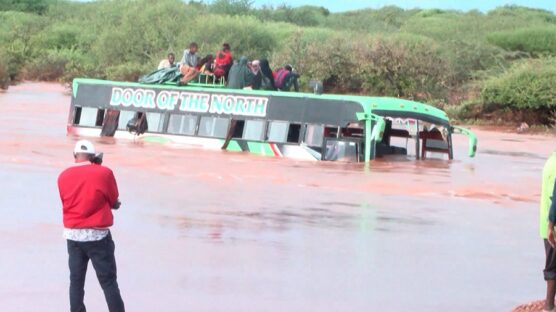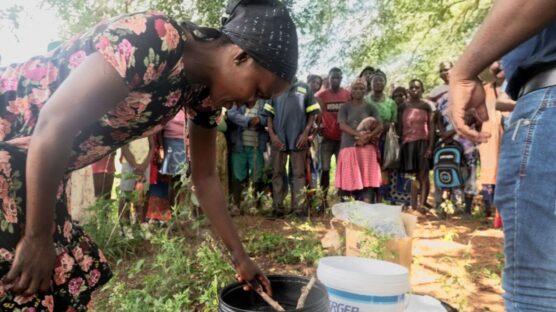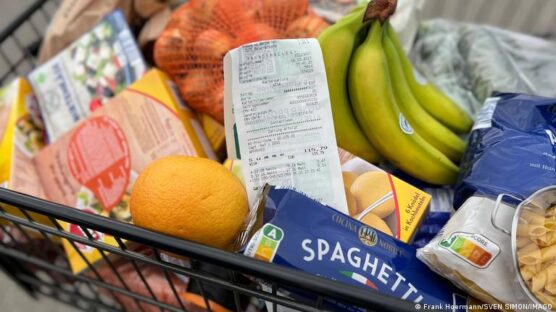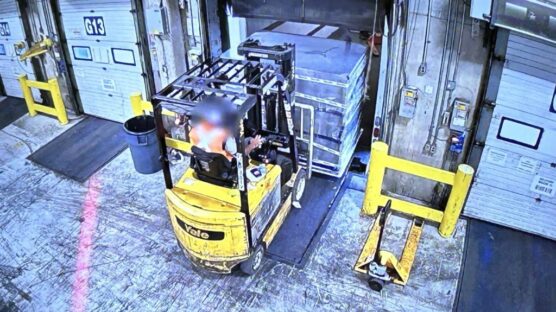In Ghana, farmers try to boost ailing cocoa production
By DW
12 February 2019 |
10:46 am
Cocoa farming is the first step in making the world's most popular sweet treat: chocolate. But in one top cocoa producing nation, yields have been plummeting for years. What can be done to boost production in Ghana?
Related
Related
11 Apr
Passengers on a bus that was swept downstream by floodwater on Tuesday (April 9) in Kenya's east clung to ropes as they crossed rapids to get to safety.
11 Apr
There's no turning back says General Burhan, as Sudan approaches the first anniversary of a brutal civil war. Senegal's new leader has sparked hopes for big change and impactful progress. And it's been a good month for Tunisians as the faithful have enjoyed Ramadan celebrations.
12 Apr
Will South Africa's ex-president Jacob Zuma run for president on behalf of a new political organization that he joined last year after denouncing the ruling African National Congress party that he once led?
3 days ago
In the Rwandan village of Mbyo, Tutsi who survived the genocide now live together with rehabilitated Hutu perpetrators. But they tell DW it has been a difficult journey.
1 day ago
More than 1,000 people have succumbed to cholera, while tens of thousands across Africa have been infected in a series of deadly cholera outbreaks since the beginning of 2024.
8 hours ago
Kenya's military chief Gen. Francis Ogolla, was among 10 people killed in a helicopter crash in the Cheptulel area of Kenya's Rift Valley region, on Thursday, Kenyan President William Ruto confirmed.
Latest
1 hour ago
The country's ruling junta is stepping up cooperation with Moscow, after expelling French troops last year. Also in the programme, at least three people have been killed in a shootout between militiamen and police in the Ethiopian capital. Among the dead are fighters from a rebel militia known as Fano. Plus, the art of remembering: painters in Rwanda are keeping the memory of genocide victims alive by drawing their inspiration from photographs.
1 hour ago
This summer, a 17-year-old boy was shot to death by police during a traffic stop in the Parisian suburb of Nanterre. Nationwide protests against racist police violence in France followed. A United Nations committee then called on the French government to take action against racial profiling by law enforcement.
4 hours ago
Thirty years ago, more than 800,000 people were killed during the genocide of the Tutsis in Rwanda. Among them were several dozen members of Dafroza Gauthier's family. A few months later, the young woman and her French husband decided to track down those suspected of taking part in the mass slaughter who had taken refuge in France. Journalists Thomas Zribi and Stéphane Jobert followed the Franco-Rwandan couple in their quest for justice. They bring us this special 52-minute documentary.
4 hours ago
Inflation in Germany has fallen to its lowest level since before Russia invaded Ukraine. Food prices fell for the first time in more than 9 years, figures show, with energy prices dropping even further.
8 hours ago
Viral publications on social media are claiming that Princess Salma of Jordan shot down six Iranian drones late on Saturday. Jordan is the latest target of misinformation following its role in defending Israel against Iran's drone and missile attack. We explain in this edition of Truth or Fake.
8 hours ago
Canada's Peel Region police said Wednesday (April 17) that nine people, including Air Canada employees, are facing charges in connection to the $20 million Toronto Pearson airport gold heist that was meticulously carried out exactly one year ago.
×

Get the latest news delivered straight to your inbox every day of the week. Stay informed with the Guardian’s leading coverage of Nigerian and world news, business, technology and sports.


















0 Comments
We will review and take appropriate action.